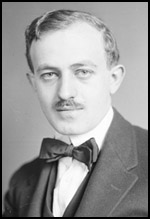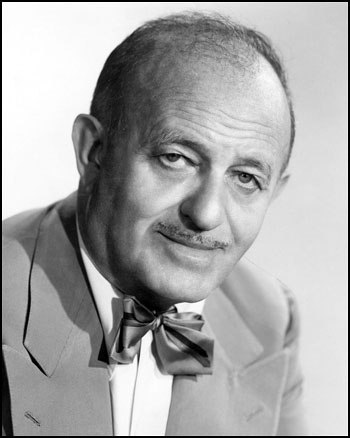Ben Hecht

Ben Hecht, the son of Russian–Jewish immigrants, Joseph Hecht and Sarah Swernofsky Hecht, was born in New York City on 28th February, 1894. His parents, who worked in the garment industry, spoke Yiddish in the family home.
The family moved to Racine, Wisconsin, in order to run a store. As a child he was a talented violinist. However, he wanted to be a writer and at the age of sixteen he moved to Chicago. He found work as a journalist with the Chicago Journal. He later moved to the Chicago Daily News where he became friends with fellow reporter, Charles MacArthur. While living in the city he became friends with other aspiring writers such as Floyd Dell, Theodore Dreiser, Sherwood Anderson, Carl Sandburg and Maxwell Bodenheim.
On 7th November, 1918, Kurt Eisner, leader of the Independent Socialist Party, declared Bavaria a Socialist Republic. Two days later, Emil Eichhorn was appointed head of the Police Department in Berlin. On 4th January, 1919, Friedrich Ebert, Germany's new chancellor, ordered the removal of Eichhorn. When this order was rejected, Ebert called in the German Army and the Freikorps to bring an end to the rebellion.
Hecht was sent to Germany to report on what had become known as the German Revolution. This included the assassination of Kurt Eisner on 21st February, 1919, when he was assassinated in Munich by Anton Graf von Arco auf Valley. It is claimed that before he killed the leader of the ISP he said: "Eisner is a Bolshevist, a Jew; he isn't German, he doesn't feel German, he subverts all patriotic thoughts and feelings. He is a traitor to this land." Karl Liebknecht and Rosa Luxemburg, leaders of the J were also murdered by the authorities. Hecht's first novel, Erik Dorn (1921) was based on events he observed in Germany in 1919.
In 1921, Hecht started a Chicago Daily News column called, One Thousand and One Afternoons in Chicago . His editor, Henry Justin Smith, later argued that it was a new development in journalism "in this urban life there dwelt the stuff of literature, not hidden in remote places, either, but walking the downtown streets, peering from the windows of sky scrapers, sunning itself in parks and boulevards. He (Hecht) was going to be its interpreter. His was to be the lens throwing city life into new colors, his the microscope revealing its contortions in life and death."
Hecht also published short-stories in magazines such as The Little Review and The Smart Set. In 1926 his friend, Charles MacArthur had joined forces with Edward Sheldon, to write the play, Lulu Belle. The play was very controversial as it featured a prostitute played by Lenore Ulric, who bewitched powerful men in New Orleans. The play was a great success and MacArthur suggested to Hecht that they wrote a play together.
The play was produced by Jed Harris. However, he insisted that the play needed editing and gave the job to George S. Kaufman. As Howard Teichmann, the author of George S. Kaufman: An Intimate Portrait (1972), has pointed out: "The best cutter and the fastest rewriter in the theatre was George Kaufman. He took care of the gangsters. Futhermore, Hecht and MacArthur were newspapermen and so was Kaufman; the three of them spoke a common language. He finally joked and cajoled them into writing a better, tighter, funnier script." Kaufman was also recruited as director of the play.
The play, The Front Page, was a comedy about tabloid newspaper reporters covering the execution of Earl Williams, a white man and a suspected member of the American Communist Party who had been convicted of killing a black policeman. Williams is based on the case of Tommy O'Connor, who escaped from a Chicago courthouse in 1923. It opened at the Times Square Theatre on 14th August, 1928. The play was a smash hit, running 278 performances before closing in April 1929.
MacArthur and Hecht developed a reputation for hard-drinking. Howard Teichmann argues that this caused problems with the director of the play: "Stories of the wonderful wildness of Hecht and MacArthur persist in theatrical circles to this day. Kaufman, with his built-in sense of discipline, almost left the show. When he found them in a speakeasy, they would offer him a drink. Kaufman who took whiskey as though it were medicine managed to go through a lifetime of cocktail parties by quietly pouring his drinks into convenient receptacles."

Hecht now moved to Hollywood and provided the stories or wrote the screenplays for The Unholy Night (1929), Roadhouse Nights (1930), The Front Page (1930), The Unholy Garden (1931), Scarface (1932), Turn Back the Clock (1933), Design for Living (1933), Viva Villa! (1934), Upperworld (1934), Crime Without Passion (1934), Once in a Blue Moon (1935), Barbary Coast (1935), The Scoundrel (1935), Soak the Rich (1936), Nothing Sacred (1937), The Goldwyn Follies (1938), Gunga Din (1939), Wuthering Heights (1939), It's a Wonderful World (1939), His Girl Friday (1940), Angels Over Broadway (1940), Comrade X (1940), Lydia (1941), The Black Swan (1941), China Girl (1942), Spellbound (1945), Notorious (1946), Whirlpool (1949), The Indian Fighter (1955), Miracle in the Rain (1956) and A Farewell to Arms (1957).
Ben Hecht died on 18th April, 1964.
Primary Sources
(1) Howard Teichmann, George S. Kaufman: An Intimate Portrait (1972)
Sometime during the rehearsals and the try-outs of The Royal Family, Jed Harris took an option on a play written by two Chicago newspapermen about two Chicago newspapermen. Ben Hecht and Charles MacArthur had come up with The Front Page. It was good, but in the unchallenged opinion of Harris it needed cutting and rewriting. Of equal importance was the fact that no matter how many times the play was rewritten, gangsters invariably turned up in the third act.
The best cutter and the fastest rewriter in the theatre was George Kaufman. He took care of the gangsters. Futhermore, Hecht and MacArthur were newspapermen and so was Kaufman; the three of them spoke a common language. He finally joked and cajoled them into writing a better, tighter, funnier script.
Harris then convinced him, as only Harris could, to take on the directorial assignment. According to Harris' general manager at that time, Herman Shumlin, who later became one of the theatre's most accomplished producer-directors, Kaufman had already done a few jobs of directing, but never with his name on the program. The Front Page was his first time out officially.
Stories of the wonderful wildness of Hecht and MacArthur persist in theatrical circles to this day. Kaufman, with his built-in sense of discipline, almost left the show. When he found them in a speakeasy, they would offer him a drink. Kaufman who took whiskey as though it were medicine managed to go
through a lifetime of cocktail parties by quietly pouring his drinks into convenient receptacles. "I happen to know," he once told Ben Hecht, "that rubber plant over there has been drunk four times this week on my drinks alone."
Casting a play is one of the director's most important tasks. Kaufman the newspaperman made it his business to see almost every play that opened on Broadway. Kaufman the playwright was keenly knowledgeable as to the exact talent of almost every available actor. Kaufman the director, therefore, cast The Front Page almost perfectly. Osgood Perkins and Lee Tracy headed the players. They were supported by actors whose names or faces became nationally and internationally known or recognized via stage and film for thirty years: Allen Jenkins, William Foran, Tammany Young, Joseph Spurin-Calleia, Walter Baldwin, Eduardo Cianelli, Frances Fuller, George Barbier.
As the play went into rehearsal, it soon became apparent that Kaufman's casting was found lacking in a single role. George S. Kaufman had been unable to pick a good prostitute. At the end of five days, the actress, whoever she was, was fired. For a replacement he got Dorothy Stickney. Miss Stickney, who had been married just under a year to Kaufman's friend and first director, Howard Lindsay, created the role of Molly Malloy, the Clark Street tart. Her entrance line on bursting into a roomful of drinking, smoking, and classically cursing reporters was, "I've been looking for you bastards!"
Born in Dickinson, North Dakota, educated at St. Catherine's College, and married to a man who at one time had seriously considered becoming an ordained minister, Miss Stickney at first found that line definitely objectionable. After some hassling, Kaufman took the basically timid, gentle, very ladylike lady aside and explained that "I've been looking for you bastards!" was a line inserted solely for the purpose of arousing sympathy from the audience for the character she was playing. After that, he had no trouble with her.

